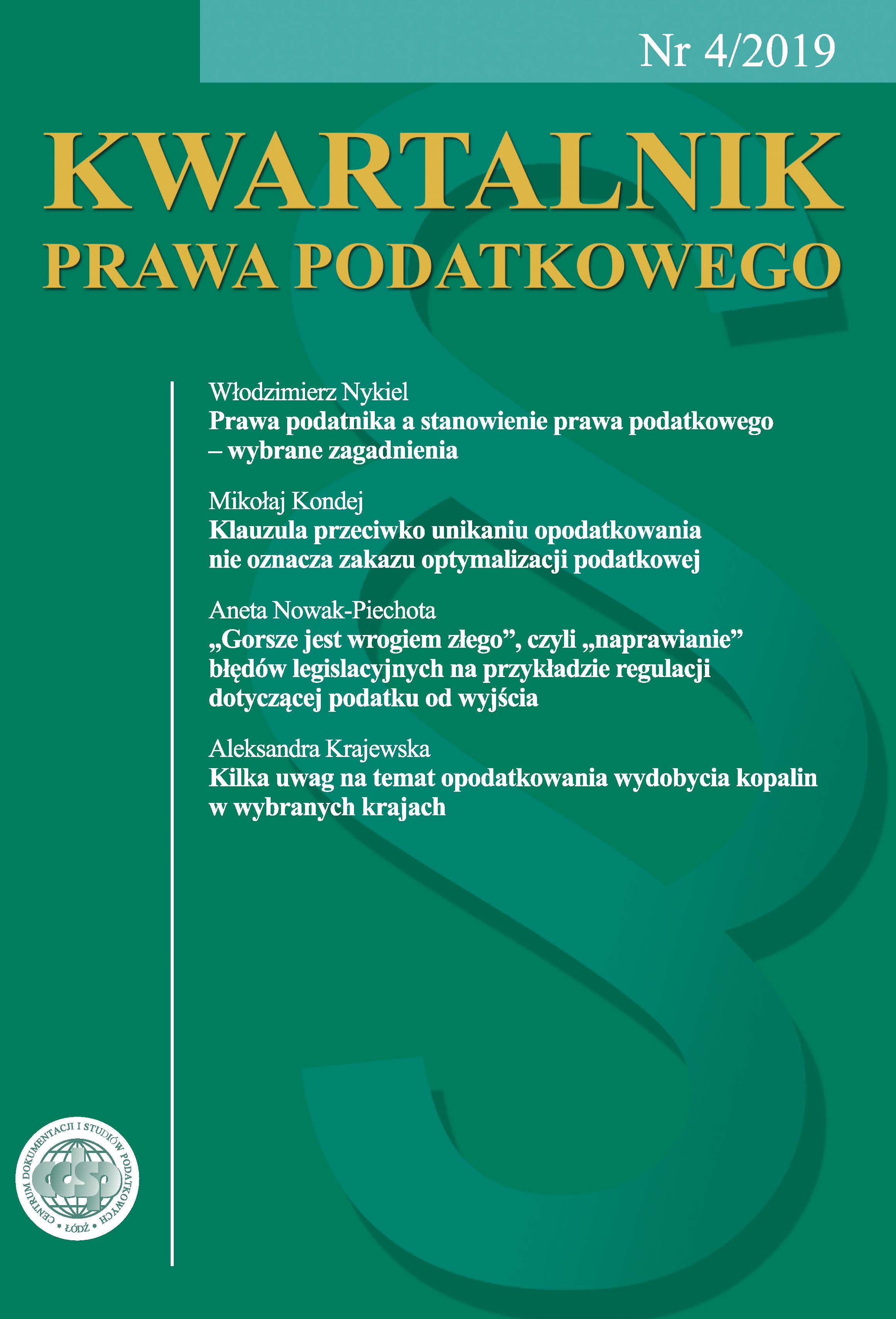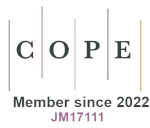General anti-avoidance rule (GAAR) does not mean prohibition of tax optimization. Adverse gloss to decision refusing issuing protective opinion of 28 May 2020 (DKP3.8011.8.2019)
DOI:
https://doi.org/10.18778/1509-877X.2019.04.02Keywords:
general anti-avoidance rule, GAAR, Article 119 of the tax ordinance, tax advantage that defeats the object or purpose of the law, non-genuine arrangement, related partiesAbstract
On 28 May 2020 the Head of Polish Revenue Administration refused to issue protective opinion under general anti-avoidance rule (GAAR) regarding taxpayer right to recognize taxable loss on sale of shares in a subsidiary. The transaction took part between related parties. The loss was result of a significant drop in market value of the subsidiary shares due to business fail of this entity. The tax authority argued that, in given circumstances, recognition of loss on sale remains contrary to the object and purpose of the tax law due to the fact that intra-group transactions should not be utilized to manipulate taxable revenue. In the article the author challenges correctness of such argumentation. He claims that recognition of actual economical loss, as a result of sale of shares to related party, remains in line with the aim and spirit of the tax law.
Downloads
References
Cebula T., Kondej M., Dlaczego przesłanki „sprzeczności korzyści podatkowej z przedmiotem lub celem ustawy podatkowej lub jej przepisu” nie należy nazywać „samospełniającą się”, „Monitor Podatkowy” 2020, nr 10, Legalis/el.
Google Scholar
Filipczyk H., Refleksje o przedmiocie podatku dochodowego, „Kwartalnik Prawa Podatkowego” 2015, nr 2.
Google Scholar
Filipczyk H., „Sprzeczność z przedmiotem lub celem ustawy podatkowej lub jej przepisu” jako klauzulowa przesłanka unikania opodatkowania, „Przegląd Podatkowy” 2020, nr 3.
Google Scholar
Guzek M., Stefaniuk M., Klauzula przeciwko unikaniu opodatkowania. Komentarz praktyczny, Warszawa 2018.
Google Scholar
Jankowski J., Konstytucyjność klauzuli ogólnej przeciwko unikaniu opodatkowania, „Monitor Podatkowy” 2020, nr 5.
Google Scholar
Kondej M., Granice optymalizacji podatkowej przed wejściem w życie klauzuli przeciwko unikaniu opodatkowania, Poznań 2017.
Google Scholar
Kondej M., Jeszcze o koszcie jako wydatku związanym z przychodami. Racjonalność działania podatnika jako przesłanka rozpoznania kosztu podatkowego, „Kwartalnik Prawa Podatkowego” 2018, nr 4.
Google Scholar
DOI: https://doi.org/10.18778/1509-877X.2018.04.06
Kondej M., Klauzula przeciwko unikaniu opodatkowania. Komentarz do przepisów materialnoprawnych, Poznań 2018.
Google Scholar
Kondej M., Zmiany w klauzuli ogólnej przeciwko unikaniu opodatkowania wchodzące w życie w 2019 r., „Praktyka Podatkowa” 2018, nr 1.
Google Scholar
Kuźniacki B., Dekodowanie hipotezy GAAR: przesłanka sztuczności i jej istotny wpływ na przesłankę sprzeczności, cz. 2, „Przegląd Podatkowy” 2020, nr 7.
Google Scholar
Kuźniacki B., The Polish GAAR is Just a GAAR! Why the Head of the National Revenue Administration Thinks Differently?, Kluwer International Tax Blog, http://kluwertaxblog.com/2020/08/04/the-polish-gaar-is-just-a-gaar-why-the-head-of-the-national-revenue-administration-thinks-differently/ (dostęp: 14.08.2020).
Google Scholar
Ladziński A., Zmiany w ogólnej klauzuli przeciwko unikaniu opodatkowania – powrót do przeszłości, „Przegląd Podatkowy” 2019, nr 1.
Google Scholar
Stefaniak M., Cel dokonania czynności oraz sztuczny sposób działania jako odrębne przesłanki stosowania klauzuli przeciwko unikaniu opodatkowania, „Przegląd Podatkowy” 2020, nr 5.
Google Scholar
Werner A., Istota unikania opodatkowania, [w:] Klauzula przeciwko unikaniu opodatkowania, red. D. Gajewski, Warszawa 2018, LEX/el.
Google Scholar
Downloads
Published
How to Cite
Issue
Section
License

This work is licensed under a Creative Commons Attribution-NonCommercial-NoDerivatives 4.0 International License.
PlumX metrics









